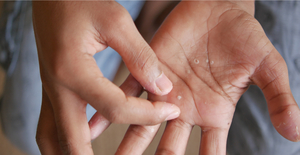Find Hepatitis test
in Rapid City, SD.
Own a clinic? Add your location.
Help patients book appointments with you on Solv. It's free!
2 instant-book locations

Black Hills Urgent Care, Mountain View Urgent Care
Black Hills Urgent Care

Black Hills Urgent Care, Haines Ave - Urgent Care
Black Hills Urgent Care

Black Hills Urgent Care, Haines Ave - Non Provider Visit
Black Hills Urgent Care
Urgent Care Health Concepts
Urgent Care Health Concepts
Own a clinic? Add your location.
Help patients book appointments with you on Solv. It's free!
About Hepatitis test
Who should get tested for hepatitis?
Anyone who has been exposed to the hepatitis virus should consider getting tested. This includes individuals who have shared needles, had unprotected sex, or have been in close contact with someone who has the virus. In particular, people who have multiple sexual partners, men who have sex with men, and those with HIV should get tested regularly. According to the CDC, baby boomers (born between 1945 and 1965) are also at a higher risk and should be tested at least once in their lifetime.
Importance of getting tested
Getting tested for hepatitis is crucial for several reasons. Firstly, many people with hepatitis do not show symptoms until the disease has progressed, making early detection vital for effective treatment. Secondly, knowing your status can help prevent the spread of the virus to others. Lastly, early detection and treatment can prevent serious health complications such as liver disease and cancer.
Hepatitis testing options in Rapid City, SD:
Urgent care and walk-in clinics
There are several urgent care and walk-in clinics in Rapid City that offer hepatitis testing. For example, Black Hills Urgent Care on Mountain View Rd and Haines Ave both have high ratings and offer same-day and next-day appointments through Solv’s website and mobile app.
Primary care providers
Primary care providers are another option for hepatitis testing. If you have a regular doctor, they can order the test for you. However, if you do not have a primary care provider, you can still get tested at an urgent care clinic.
Free STD testing and community health centers
Community health centers often offer free or low-cost STD testing, including hepatitis. These centers are a great resource for those who cannot afford to pay for testing or do not have health insurance.
At-home testing
At-home testing kits for hepatitis are also available. These kits allow you to collect a sample at home and send it to a lab for testing. Results are usually available within a few days.
Prevalence of hepatitis in Rapid City
While specific data for Rapid City is not readily available, according to the CDC, South Dakota has a relatively low prevalence of hepatitis compared to the national average. However, it is important to note that many cases of hepatitis go unreported due to lack of symptoms, so the actual number of cases may be higher.
Risk factors related to hepatitis in Rapid City
Risk factors for hepatitis in Rapid City are similar to those in other parts of the country. These include drug use, unprotected sex, and close contact with someone who has the virus. Additionally, individuals who have other STDs, such as gonorrhea, chlamydia, HIV, or syphilis, are at a higher risk for contracting hepatitis.
Other STDs in Rapid City
In addition to hepatitis, other STDs such as gonorrhea, chlamydia, HIV, and syphilis are also present in Rapid City. As with hepatitis, regular testing is crucial for early detection and treatment of these STDs.
Solv has strict sourcing guidelines and relies on peer-reviewed studies, academic research institutions, and medical associations. We avoid using tertiary references.
Related Searches
DOT Exam in Rapid City
Ear Wax Removal in Rapid City
Sports Physicals in Rapid City
A1C Test in Rapid City
Allergy Testing in Rapid City
Basic Metabolic Panel in Rapid City
CMP Test in Rapid City
Diabetes Test in Rapid City
Diagnostic Test in Rapid City
H Pylori Test in Rapid City
Hepatitis test in Rapid City
Lab Tests in Rapid City
Mono Test in Rapid City
Pregnancy Test in Rapid City
Pulmonary Function Test in Rapid City
RSV Test in Rapid City
STD Testing in Rapid City
Strep Test in Rapid City
TB Test in Rapid City
Thyroid Test in Rapid City
Vitamin D Test in Rapid City
Aetna Urgent Care
Blue Cross Blue Shield Urgent Care
Cigna Urgent Care
COVID-19
Flu
United Health Urgent Care
» All services in Rapid CityFind hepatitis test
Nearby cities
Everyday Healthcare, Simplified
Expert advice to help you live your best life







